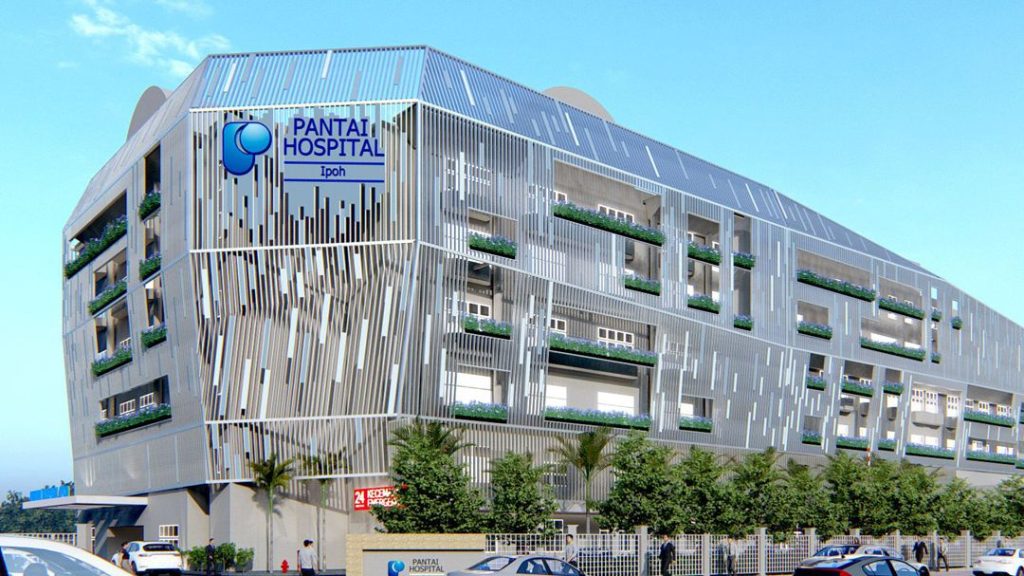You’ve been grappling with persistent leg pain for months, disrupting your daily activities. Your doctor suggests a total knee replacement surgery, but the steep price in Singapore makes you hesitate. A friend then mentions that the same procedure costs a fraction in Malaysia, thanks to its thriving medical tourism industry.
Could this be the solution you’ve been searching for? What’s the catch, and why is Malaysia becoming a go-to destination for affordable, high-quality medical care?
A Growing Trend of Medical Tourism
Singapore boasts a world-renowned healthcare system with state-of-the-art technology, attracting patients from around the globe.
However, the high cost of healthcare can strain even local residents’ finances in spite of government subsidies. This has made seeking treatment in Malaysia an attractive alternative. With its affordability, advanced medical facilities, and close proximity, Malaysia has become a prime destination for Singaporeans seeking cost-effective healthcare.
Malaysia is also a thriving hub for medical tourism in Asia, welcoming patients from all corners of the world. Medical tourists are individuals who travel to other countries for medical treatment.
In 2024, Malaysia experienced a substantial 26% increase in medical tourists, with approximately 1.26 million visiting between January and November, compared to around 1 million in 2023.
Malaysia stands out for having a dedicated government-backed agency, the Malaysia Healthcare Travel Council (MHTC), under the Ministry of Health, to oversee and manage medical tourism effectively.
Read also: Island Hospital Acquisition to Cement Penang’s Position as a Leading Medical Travel Hub
Why Seek Treatment Abroad?
Affordable healthcare costs are a major motivator for Singaporeans to consider medical care in Malaysia.*
1. Affordable Healthcare Costs
The substantial cost savings are a major draw for Singaporeans seeking medical tourism in Malaysia. Procedures such as dental work, health screenings, and specialist consultations can often be 50-70% cheaper than in Singapore. The favourable exchange rate between the Malaysian Ringgit (MYR) and Singapore Dollar (SGD) further sweetens the deal.
Let’s look at the table below to compare the average costs of some medical treatment, procedures and health screening packages between the two countries:
| Type of procedure | Singapore | Malaysia |
| Chemotherapy (per cycle)
(Chemotherapy is a treatment that uses drugs to kill cancer cells.) |
S$3,300
(RM 10,850) |
S$300
(RM 990) |
| Stem cell therapy
(Stem cell therapy uses special viable cells to repair damaged tissues to promote healing.) |
S$12,000 to S$15,000
(RM 39,500 to RM 49,300) |
S$ 9,120 to S$ 36,500
(RM30,000 to RM120,000) |
| Colonoscopy
(Colonoscopy is a procedure of inserting a tube with camera into the intestines to check for inflammation.) |
S$2,000 to S$3,500
(RM 6,500 – RM 11,500) |
S$400 to S$880
(RM 1,300 – RM 2,900) |
| In-clinic Teeth-whitening procedure
(Teeth whitening is a process of removing stains on the teeth to make them look brighter and whiter.) |
$900
(RM 2,960) |
S$370
(RM1,200) |
| Basic health screening package
(This screening package includes fundamental tests such as blood pressure and sugar measurement, and basic organ function tests.) |
S$230 – S$330
(RM 760 – RM 1,090) |
S$160 – S$310
(RM 550 – RM 1,100) |
| Comprehensive health screening package
(This screening package includes broader range of tests apart from basic health screening tests.) |
S$ 570 – S$ 1,110
(RM 1,900 – RM 3,600) |
S$310 – S$580
(RM 1,100 – RM 2,000) |
*Rate of conversion between MYR and SGD may vary depending on market rates.
2. Proximity
Malaysia’s close proximity to Singapore makes it convenient for medical tourism. Cities like Johor Bahru, Kuala Lumpur, and Penang are easily accessible by road or a short flight.
Many private hospitals in Malaysia cater to international patients, offering services such as airport pickups, concierge assistance, and package deals for medical treatments.
Watch now: Health Screening Experience @ Sunway Medical Centre Penang | Medical Channel Asia
3. High-Quality Medical Facilities and Services
Malaysia has invested significantly in its healthcare infrastructure, and numerous private hospitals have received accreditation from international bodies like the Joint Commission International (JCI).
JCI-accredited hospitals maintain rigorous standards and employ highly qualified doctors, many of whom have trained or worked overseas, including Singapore.

Furthermore, Malaysia provides a wide array of medical services, including general health check-ups, specialist consultations, dental and cosmetic procedures, fertility treatments, and chronic disease management. Many Malaysia hospitals also offer dedicated centres of excellence that focus on specific disciplines.
Another advantage is the relatively shorter waiting times in Malaysian private hospitals, allowing patients to receive prompt treatment.
Key Considerations For Medical Tourism In Malaysia
While the cost and quality of medical treatment across the border are enticing, Singaporeans should consider all aspects when it comes to medical tourism, before seeking treatment in Malaysia.
1. Travel Costs
Depending on the location, transportation and accommodation costs can accumulate. Frequent follow-ups may necessitate multiple trips, so it is important to factor in time and travel expenses when looking at total expense.
2. Insurance Coverage

Singapore has a national medical savings scheme called Medisave for its citizens and permanent residents to pay for medical expenses. However, Medisave scheme is not extendable for medical treatments sought overseas. Singaporeans should consider getting health insurance policies to cover the expenses if they are getting medical care abroad.
Many private hospitals in Malaysia engaged in medical tourism offer flexible payment plans for international patients. While medical treatments are generally more affordable even for out-of-pocket payments, not all insurance policies cover treatments performed overseas. Be sure to check with your insurer beforehand.
3. Quality Assurance
While Malaysia boasts many excellent healthcare providers, be sure to do your due dilligence and research hospitals and doctors to ensure quality care. Always check the hospital’s website for accreditation details and doctor profiles before making a decision.
Read also: The Importance of Reviews in Choosing a Healthcare Provider
Is It Sustainable for Malaysia?
Malaysia is globally recognised for its affordable healthcare. However, the sustainability of offering lower prices for medical procedures amidst rising inflation is a concern.
Datuk Dr. Kuljit Singh, President of the Association of Private Hospitals Malaysia (APHM), pointed out that Malaysia currently offers some of the lowest private healthcare prices in ASEAN countries. However, inflation has impacted costs as Malaysian private hospitals source equipment and medications from abroad.
Dr. Kuljit anticipates that healthcare costs in Malaysian private hospitals will rise as they adopt newer equipment and modernise healthcare delivery.
Once a medical tourism hub, Singapore has moved away from promoting medical tourism since the 2010s, partly due to concerns that public resources were disproportionately allocated to this segment.
The Singapore Tourism Board also stopped tracking medical tourism data in 2015, and in 2018, public hospitals were restricted from targeting medical tourists. The next year, former Trade and Industry Minister Chan Chun Sing confirmed that medical tourism was no longer a priority in Singapore’s tourism strategy.
In a statement to CNA TODAY, Singapore’s Ministry of Health shared: “The priority of our public healthcare institutions is to serve Singaporeans’ healthcare needs, especially given our limited healthcare manpower resources and capacity, and risks of escalating healthcare costs.”
Medical Tourism In Malaysia: The Verdict
For those looking to balance affordability with quality, Malaysia shines as a premier destination for medical tourism. With competitive prices, world-class facilities, and highly skilled professionals, it offers a win-win for patients, particularly budget-conscious Singaporeans.
On the other hand, while the medical tourism industry attracts significant revenue and enhances Malaysia’s global reputation, the strain of rising inflation and reliance on imported medical supplies may lead to increased costs over time. As private hospitals cater to international patients, the accessibility and affordability of care for local citizens could come under scrutiny.
Can Malaysia balance the needs of its people with its growing reputation in medical tourism? Only time can tell.
In the meantime, whatever you decide, Malaysia’s growing reputation as a healthcare hub ensures you won’t have to compromise on quality.

